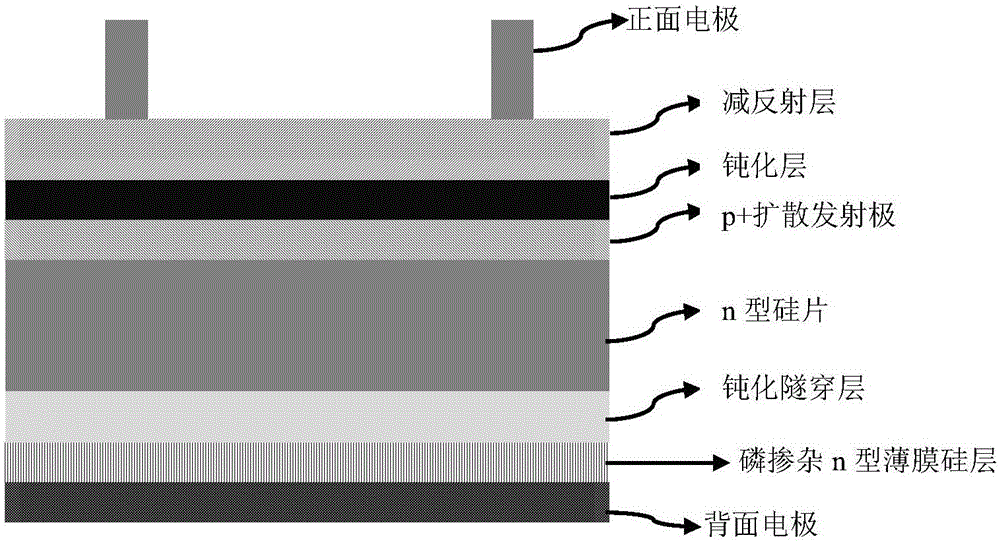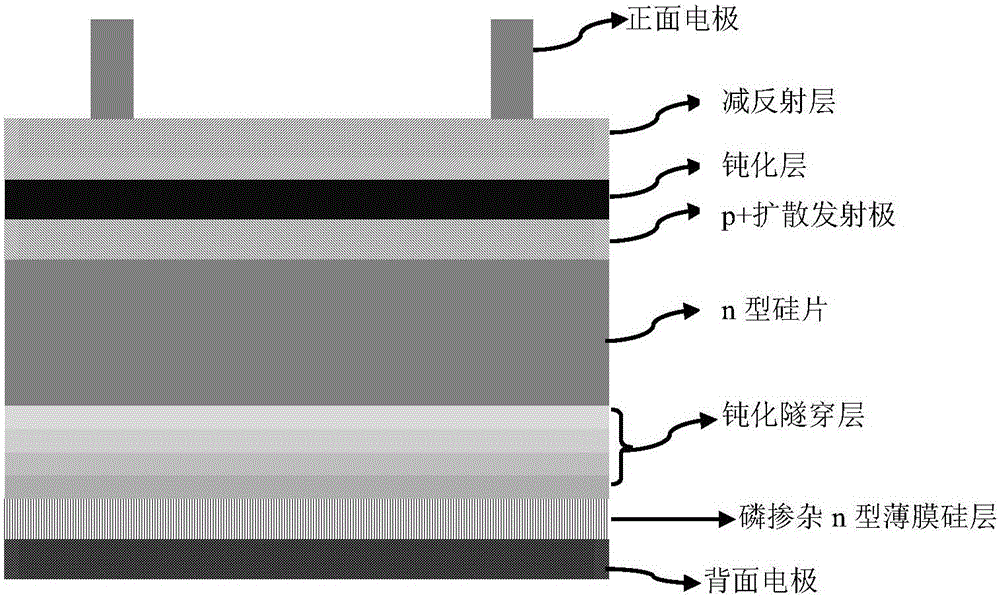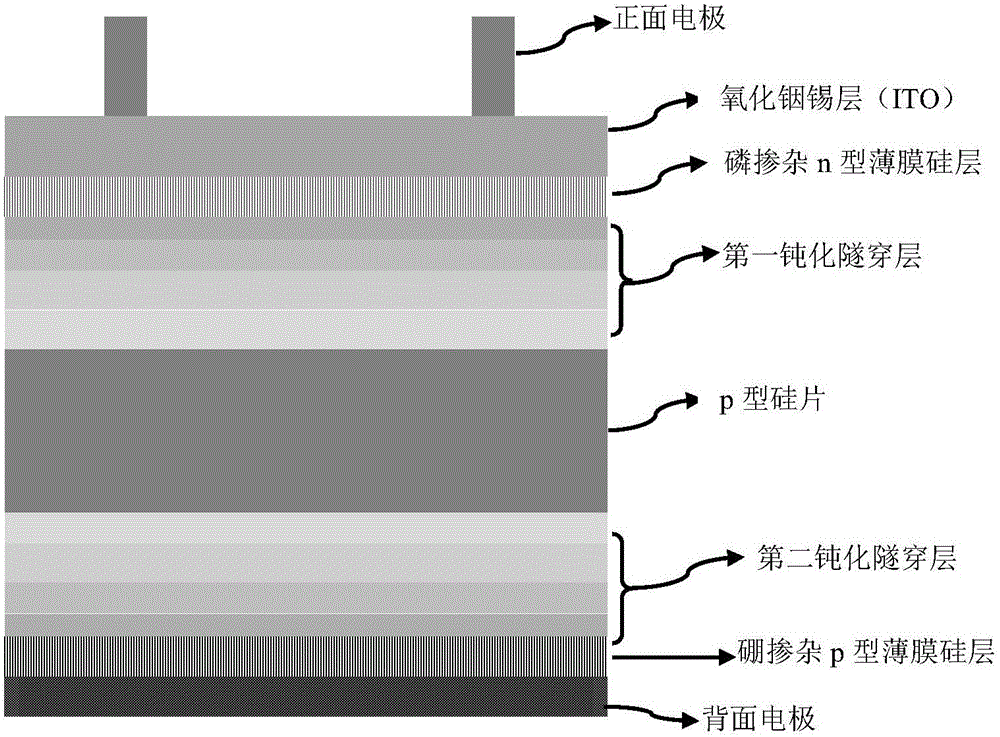A kind of tunneling silicon oxygen nitrogen layer passivation contact solar cell and preparation method thereof
A technology for tunneling silicon oxygen and nitrogen layers and solar cells, applied in the field of solar cells, can solve the problems of destroying the integrity of the silicon oxide layer, weakening the field passivation effect of the silicon wafer, affecting the filling factor, etc., so as to reduce the occurrence of leakage current and reduce the leakage current. Recombination speed, good chemical passivation effect, effect of reducing interface state density
- Summary
- Abstract
- Description
- Claims
- Application Information
AI Technical Summary
Problems solved by technology
Method used
Image
Examples
preparation example Construction
[0041] The invention provides a method for preparing a tunneling silicon oxygen nitride layer passivation contact solar cell, the solar cell includes a silicon wafer, a passivation tunneling layer, a doped thin film silicon layer, and the passivation tunneling layer Located between the silicon wafer and the doped thin-film silicon layer, wherein the preparation method includes the following steps: pretreating the silicon wafer, and forming a silicon oxide layer on one side or both sides of the pretreated silicon wafer Then generate a silicon oxynitride layer or a silicon nitride layer on the surface of the silicon oxide layer, and then anneal the obtained product; or generate a silicon oxynitride layer on one side or both sides of the pretreated silicon wafer , and then a silicon nitride layer is formed on the surface of the silicon oxynitride, and then the obtained product is annealed; or a silicon oxide layer is formed on one side or both sides of the pretreated silicon wafer...
Embodiment 1
[0075] In this embodiment, the n-type silicon wafer is used as the substrate. First, the n-type silicon wafer is pretreated. Carry out cleaning velvet, so that remove mechanical damage layer, greasy dirt and metal impurity, form undulating velvet surface simultaneously on the surface; On the n-type silicon wafer side after pretreatment, grow a layer thickness by 68% concentrated nitric acid 1.5nm silicon oxide (SiO x ) layer; then the n-type silicon wafer that generates the silicon oxide layer is placed in a plasma-enhanced chemical vapor deposition (PECVD) device, in the reaction gas SiH 4 The flow rate is 1sccm, NH 3 The flow rate is 10sccm, the cavity pressure is 10Pa, the temperature is 100°C, and the RF power is 50W, the reaction is 0.5min; then annealing is performed at 800°C for 60min in a nitrogen-hydrogen mixed (Forming Gas) atmosphere to eliminate defects and generate silicon oxide / Silicon Oxynitride Gradient Lamination; by plasma enhanced chemical vapor depositio...
Embodiment 2
[0078] Solar cells are prepared in the same manner as in Example 1, except that silicon oxide (SiO x ) layer; then the n-type silicon wafer that generates the silicon oxide layer is placed in a plasma-enhanced chemical vapor deposition (PECVD) device, in the reaction gas SiH 4 The flow rate is 1sccm, NH 3 The flow rate is 10sccm, the cavity pressure is 10Pa, the temperature is 100°C, and the radio frequency power is 50W, and the reaction is carried out for 0.5min; then annealed at 850°C for 30min in a nitrogen-hydrogen mixed (Forming Gas) atmosphere to obtain solar cell A2.
[0079] The surface saturation current density, open circuit voltage, short circuit current, fill factor, and conversion efficiency of solar cell A2 were measured in the same manner as in Example 1. The results of the passivation tunneling layer thickness and composition of solar cell A2 are shown in Table 1.
PUM
 Login to View More
Login to View More Abstract
Description
Claims
Application Information
 Login to View More
Login to View More - R&D
- Intellectual Property
- Life Sciences
- Materials
- Tech Scout
- Unparalleled Data Quality
- Higher Quality Content
- 60% Fewer Hallucinations
Browse by: Latest US Patents, China's latest patents, Technical Efficacy Thesaurus, Application Domain, Technology Topic, Popular Technical Reports.
© 2025 PatSnap. All rights reserved.Legal|Privacy policy|Modern Slavery Act Transparency Statement|Sitemap|About US| Contact US: help@patsnap.com



